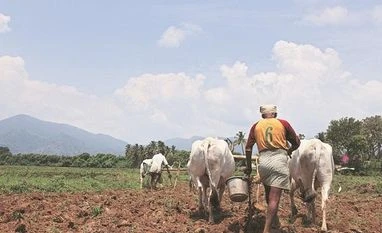- India needs an influential agriculture minister, as strong as the finance or home minister. The constitutional accountability for agriculture is with the states. Yet the farmers and public look to the centre for action, which is why it becomes so important in national politics, whether it is farmers’ livelihood or an onion crisis. That is presumably why India has a union agriculture minister. Usually that job is assigned to an unknown and uninfluential political person. That needs to change.
- India needs a formal framework and a national agricultural development policy (NADP). Believe it or not, India has no politically approved NADP, whereas it does have a national industrial development policy, a national SME policy and an entrepreneurship/startup India initiative. Whenever a coordinated, systems approach to transformation/change is required, management folks advise having a common framework. One such approach has been mooted in (https://bsmedia.business-standard.comwwww.rallis.co.in/sarthakkrishiyojana.html).
- India needs a council of ministers for agriculture. Doing anything for the farmers requires active and deep cooperation between the states and the centre. The state-centre relations are at a new low currently. Such collaboration needs to be revived. Farming is not like telecom, roads, electricity and other reform-seeking sectors because it has vectors of economic, social, political and power dimensions. It needs a mechanism like the National Development Council or the GST Council.
- Marketing must be freed up from the tangled web of controls and hindrances in which it is mired. In the past, farming initiatives were focused on increasing production. This was important to feed a growing population. To conserve the output, which increased gradually, frictional restrictions were placed in the marketing chain: regulations on where farmers can sell, restrictions on exports, taxation at the mandi level and compulsory government procurement. Arbitrary restrictions on farmers’ marketing options cannot continue, looking to the future.
- Farmer-producer companies must be accelerated with the same zeal and energy as initiatives like Jan Dhan Yojana or Swachh Bharat. Farmers must be actively trained to organise themselves into FPCs (farmer producer company). We will be better off with one crore FPCs (like SMEs in the industrial sector) instead of 170 million individual farmers. A national drive on FPCs is crucial as a vehicle to implement ideas and modernisation. NABARD could be tasked to drive this single-mindedly.
- A national technology policy must be developed and executed with urgency. A modern and futuristic approach must be implemented with regard to adoption of modern technologies. India cannot afford to debate old-fashioned technology ideas concerning land, soil, water, seeds and nutrients.
To read the full story, Subscribe Now at just Rs 249 a month
Already a subscriber? Log in
Subscribe To BS Premium
₹249
Renews automatically
₹1699₹1999
Opt for auto renewal and save Rs. 300 Renews automatically
₹1999
What you get on BS Premium?
-
Unlock 30+ premium stories daily hand-picked by our editors, across devices on browser and app.
-
Pick your 5 favourite companies, get a daily email with all news updates on them.
Full access to our intuitive epaper - clip, save, share articles from any device; newspaper archives from 2006.
Preferential invites to Business Standard events.
Curated newsletters on markets, personal finance, policy & politics, start-ups, technology, and more.
Need More Information - write to us at assist@bsmail.in
)